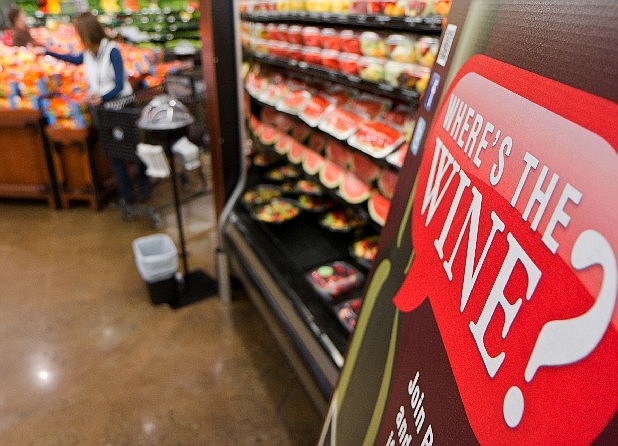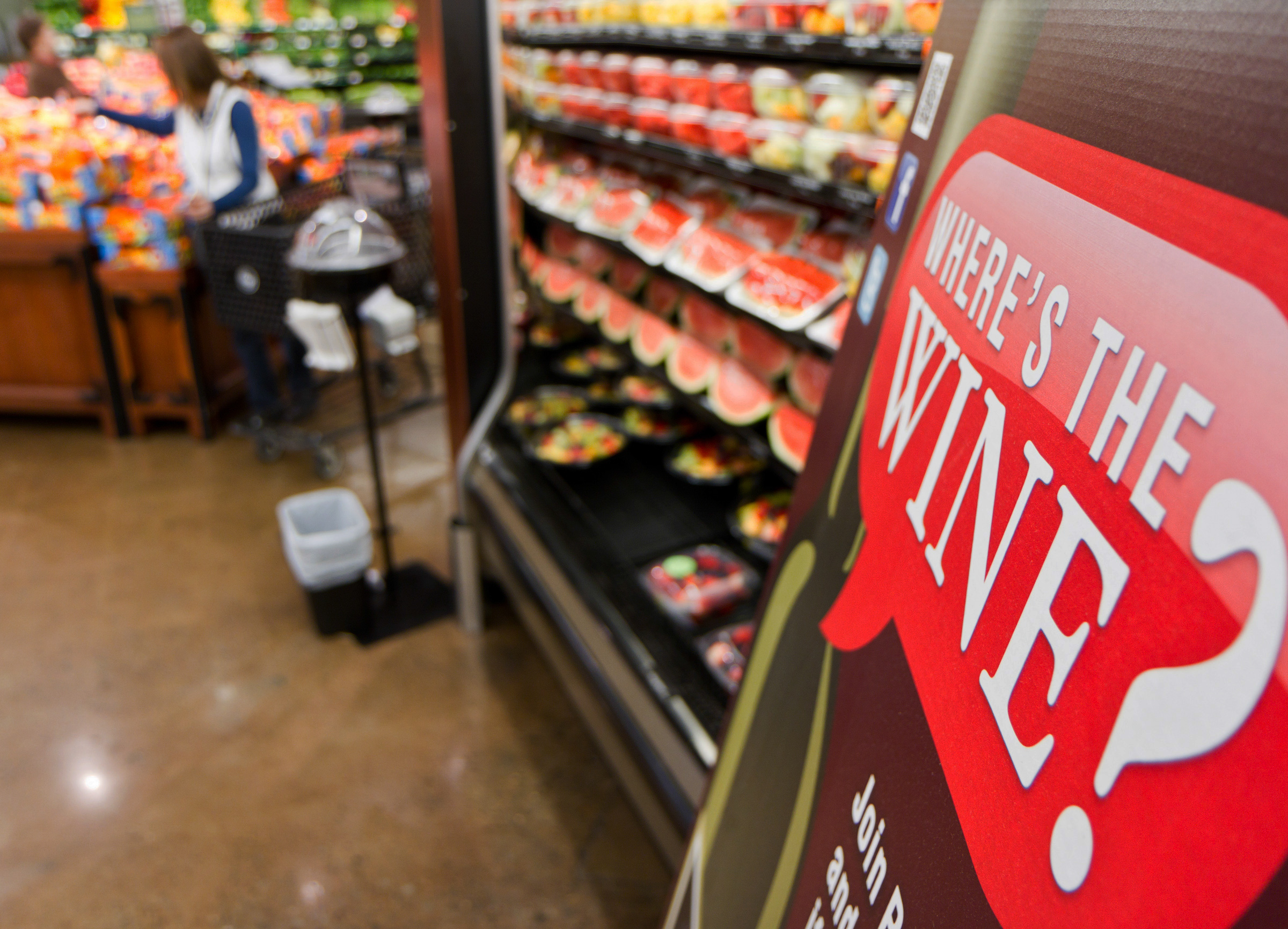The decision to allow grocery stores to sell wine is where it should be - with voters - in six Hamilton County municipalities.
Signatures of at least 10 percent of voters who cast ballots in the 2010 gubernatorial election in Chattanooga, Collegedale, East Ridge, Lakesite, Red Bank and Signal Mountain, along with 72 other cities or counties, were collected by the Aug. 21 deadline to place the issue on the ballot for the Nov. 4 election.
Voters now will give their approval or disapproval of the measure that will allow grocery stores to start selling wine on July 1, 2016. If the store is within 500 feet of a liquor store (or unless the liquor retailer gives written permission), it will be a year later before wine can be sold there.
Not enough signatures were gathered in Lookout Mountain, Soddy-Daisy and Walden, plus the unincorporated areas of Hamilton County, so folks there will have to start the process over again in time for the next municipal election if they want the opportunity to have wine sold in their grocery stores.
Ridgeside, an incorporated residential community on the east side of Missionary Ridge, has no retail package stores or liquor-by-the-drink and so won't have a say in the issue.
Other area municipalities which gathered enough signatures to put the measure on the ballot in November are Athens, Cleveland, Crossville, unincorporated Cumberland County, Etowah, Harriman, Kingston, Manchester, Monteagle and Tullahoma.
We believe the time has come to level the playing field for grocery stores and allow wine to be sold there.
Proponents of wine sales in grocery stores have been trying for nearly a decade to get such a bill passed by the General Assembly. For most of those years, the bill died in subcommittee. Eventually, though, it made it to a full committee and then to the floor for full debate. However, due to the lobby from liquor wholesalers and package store owners, it never passed either house.
In time, grocery stores ramped up their game, got their own lobby and began to gather signatures on petitions. And voters, who saw the convenience of sales in other states, put in their two cents' worth.
Ultimately, it passed the legislature and was signed by Gov. Bill Haslam in March.
To be even-handed, the law also allowed wine and liquor stores to begin on July 1 to offer beer, tobacco, food, drink mixers and other items they were previously barred from selling.
Currently Tennessee is the only state in the Publix stable of grocery stores in six states and in the Bi-Lo/Winn-Dixie group in eight states to be prevented from offering wine in their grocery stores.
"Customers continually ask us about" it, Brenda Reid, media and community relations manager for Publix, said in a meeting with Times Free Press editors and reporters.
"Over time," Daryl Massey, a district director for Bi-Lo, said in the same meeting, "we've had a lot of customers ask. It's an added convenience."
Reid, Massey and Kelly Allen, an account executive with Q Strategies, which is helping promote the drive through the Red, White and Food coalition that lobbied the Tennessee Legislature for a change in the state's law, said they surprisingly have not seen any opposition to the push.
"In years past," said Massey, "there was opposition to alcohol in stores."
The Red, White and Food website (redwhiteandfood.com) includes a 2011 Cornell University study on how wine and beer sales in grocery stores affect alcohol prices, alcohol consumption and traffic fatalities.
Among its conclusions are that states which allow sales of wine in grocery stores have lower wine prices and higher wine consumption rates; that states with higher rates of wine consumption as a share of total alcohol consumption have lower rates of traffic fatalities; and that youth fatalities involving alcohol are more closely tied to beer and spirit consumption (as opposed to wine) and are particularly sensitive to alcohol sale hours (which depend on local
laws).
As a whole, there is little downside to voting for the measure. Even liquor retailers, who have had a monopoly on the sale of wine for years, get to offer more items to their customers as a part of the law.
We advocate voting "for [the] legal sale of wine at retail food stores," as the ballot reads. But even more importantly, the issue is in the hands of the people.

